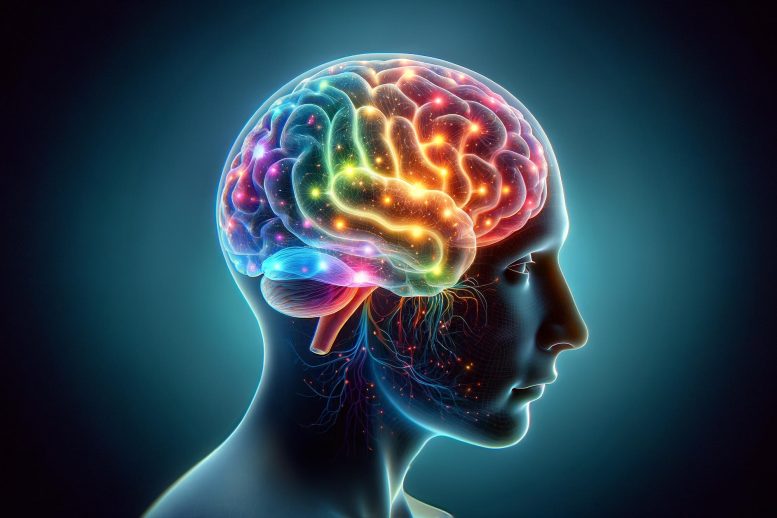
The serotonin-boosting actions of antidepressants are essential and relieve depression by restoring normal communication and connections in the brain.
New research highlights that SSRIs and other antidepressants treat depression not by correcting a serotonin imbalance, but by promoting neuroplasticity and enhancing brain region communication, reshaping clinical discussions about their effectiveness.
New Research on Antidepressants
Scientists from the University of Colorado Anschutz Medical Campus have established a new framework for understanding how classic antidepressants work in treating major depressive disorder (MDD), reemphasizing their importance and aiming to reframe the clinical conversation around their role in treatment.
The nature of the dysfunction at the root of MDD has been under investigation for decades. Classic antidepressants, like SSRIs (selective serotonin reuptake inhibitors, such as Prozac and Zoloft) cause an elevation in the levels of the brain chemical messenger, serotonin. This observation led to the idea that antidepressants work because they restore a chemical imbalance, such as a lack of serotonin. However, subsequent years of research showed no significant decrease in serotonin in people with depression. While experts have moved away from this hypothesis due to lack of concrete evidence, this has led to a shift in public opinion on the effectiveness of these medications.
A New Framework for Understanding MDD Treatments
Antidepressants, such as SSRIs and serotonin and norepinephrine reuptake inhibitors (SNRIs) are still effective in alleviating depressive episodes in many patients, however. In a paper published in Molecular Psychiatry, researchers outline a new framework for understanding how antidepressants are efficacious in treating MDD. This framework helps clarify how antidepressants like SSRIs are still be helpful, even if MDD isn’t caused by a lack of serotonin.
“The best evidence of changes in the brain in people suffering from MDD is that some brain regions are not communicating with each other normally,” says Scott Thompson, PhD, professor in the Department of Psychiatry at the University of Colorado School of Medicine and senior author. “When the parts of the brain responsible for reward, happiness, mood, self-esteem, even problem-solving in some cases, are not communicating with each other properly, then they can’t do their jobs properly.
The Role of Neuroplasticity in Treating MDD
“There is good evidence that antidepressants that increase serotonin, like SSRIs, all work by restoring the strength of the connections between these regions of the brain. So do novel therapeutics such as esketamine and psychedelics. This form of neuroplasticity helps release brain circuits from being ‘stuck’ in a pathological state, ultimately leading to a restoration of healthy brain function,” said Thompson.
Thompson and colleagues liken this theory to a car running off the road and getting stuck in a ditch, requiring the help of a tow truck to pull the car out of its stuck state, allowing it to move freely down the road again.
Implications for Clinical Practice
Researchers hope healthcare providers will use their examples to bolster conversations with apprehensive patients about these treatments, helping them better understand their condition and how to treat it.
“We are hoping this framework provides clinicians new ways to communicate the way these treatments work in combating MDD,” said C. Neill Epperson, MD, Robert Freedman endowed professor and chair of the Department of Psychiatry in the University of Colorado School of Medicine and co-author on the paper.
“Much of the public conversation around the effectiveness of antidepressants, and the role serotonin plays in diagnosis and treatment, has been negative and largely dangerous. While MDD is a heterogeneous disorder with no one-fits-all solution, it is important to emphasize that if a treatment or medication is working for you, then they are lifesaving. Understanding how these medications promote neuroplasticity can help strengthen that message.”
Reference: “Beyond the serotonin deficit hypothesis: communicating a neuroplasticity framework of major depressive disorder” by Chloe E. Page, C. Neill Epperson, Andrew M. Novick, Korrina A. Duffy and Scott M. Thompson, 31 May 2024, Molecular Psychiatry.
DOI: 10.1038/s41380-024-02625-2
4 Comments
So they’re finally admitting they’ve been pushing that crap on people all this time, without knowing what that crap is doing. How about a class action lawsuit against the Big Pharma for false advertising?
… and we’re talking decades of false advertising. These companies should go bust.
They never said they knew pecisely the mechanism of action. Serotonin was a hypothesis. What is undeniable is that a significant number of people get relief from depressive symptoms with these drugs. That we were in the dark about mechanism was well known. The basic axiom was that the “new” anti depressants worked in about 70% of patients. The problem was which 70% (they overlap) the patient was in. So each patient is their own experimant on what works. It can be frustrating or miraculous depoending on the patient. For me it was miraculous.
Big Pharma is not morally evil. It is quite amoral. It is though very aggressively captialist which is what I think you hold against it. Which I agree with.
Hey, I have used Lexapro for years. It works. Will there be something better? I hope so.